Interview: Kevin Tighe on ‘One Battle After Another’ and a great career on stage and screen
The great character actor talks about his return to the screen in 'One Battle After Another' and a half-century journey in the business.
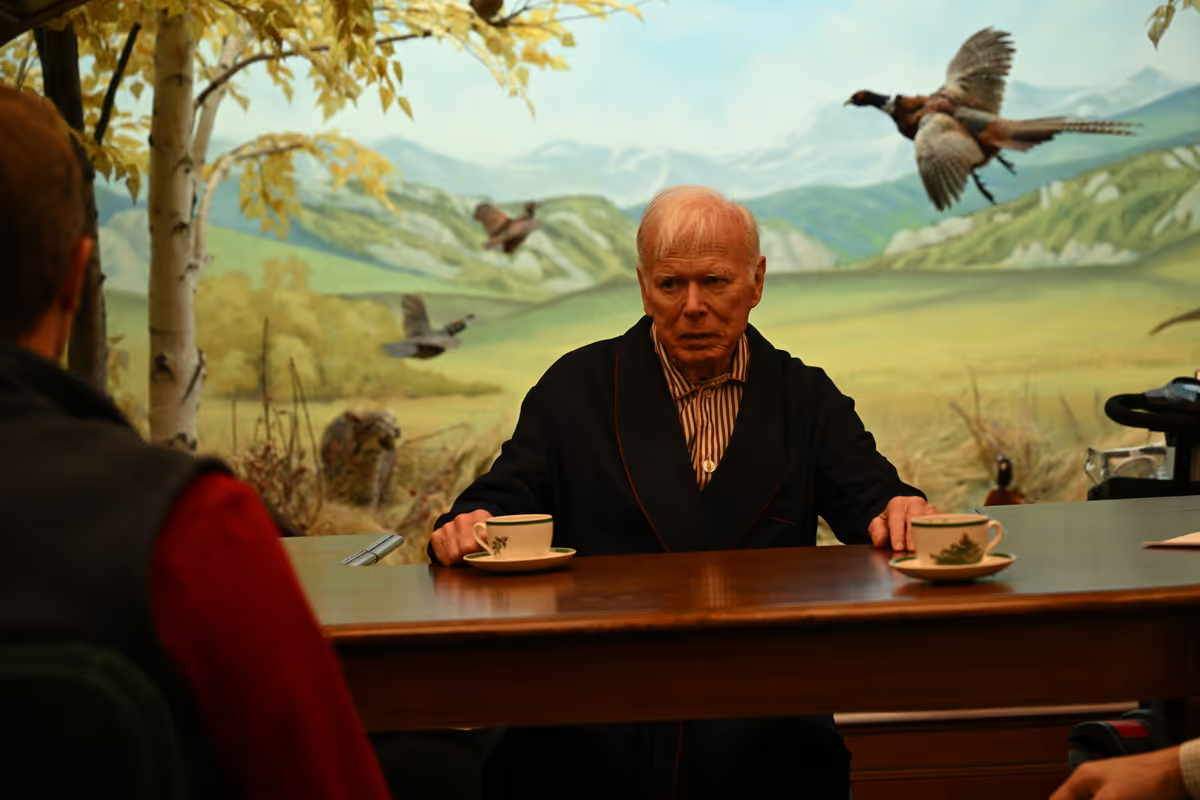
You know who Kevin Tighe is, even if you don’t know the name “Kevin Tighe.” He is the quintessential “that guy” character actor, with a career in film and television that’s lasted over a half century. But for fans of Tighe’s work, it was a great surprise to see him turn up late in Paul Thomas Anderson’s One Battle After Another as Roy More, a member of the sinister underground political organization that calls itself the Christmas Adventurers Club. Tighe had not appeared on screen for nearly a decade before taking the role, in part because of the limitations of a Parkinson’s diagnosis, which he discusses in more detail in the interview below.
Though his appearance in One Battle After Another may be brief, it’s a brilliant piece of casting, a pungent capper to an extraordinary journey on stage and screen. While Tighe worked some bit parts as a young actor in the late ‘60s—quite literally, only part of him can be seen in 1967’s The Graduate—his career took off when he landed the role of Roy DeSoto in the NBC hit Emergency!, an influential show about paramedics that lasted from 1972 to 1977. After the series ended, Tighe was so strongly associated with the character that he struggled to get cast in anything else and he took some time away to reinvent himself as an actor.
When Tighe reemerged in John Sayles’ great 1987 historical drama Matewan as Hickey, a union-buster from the Baldwin-Felts Detective Agency, it kicked off a busy second act in which he was often cast as the heavy. He would appear in two other Sayles movies, 1988’s Eight Men Out and 1991’s City of Hope, and joined the gallery of ace character actors in 1989’s Road House as Frank Tilghman, the owner of a roughneck bar called the Double Deuce. From there, he worked with several major directors, including Walter Hill (Another 48 Hrs., Geronimo: An American Legend, the “Calling Card” episode of Tales from the Crypt), Lasse Hallström (What’s Eating Gilbert Grape), William Friedkin (Jade), Lawrence Kasdan (Mumford), and Peter Greenaway (The Tulse Luper Suitcases).
Last week via Zoom, Tighe talked to The Reveal about the experience of acting again in One Battle After Another, the twists and turns of his career, and the production crew as a surrogate family.
It was just such a thrill to see you in One Battle After Another. It had been quite a while since you had been on screen. How did this role come about?
Usually when you’re cast in the film, you go through a process of so many actors trying to land the role. In this case, it was a surprise call from the casting director, Cassandra [Kulukundis], to me, saying that Paul was interested in my working with him on this film. And I was surprised, because I hadn’t worked in a while. I’m 81. I have Parkinson’s. I’ve had that since 2014 with some of the symptoms of it dating back to COVID. The Parkinson’s I have is a slow-moving disease. It can vary, but I’ve been blessed with giving it a little bit more time.
But I do have what’s called mild cognitive impairment, which gets in the way and its effect is on the memory, of just being able not to remember lines. Even though I would prepare and know the lines and know them cold, actually getting in and getting all the ducks lined up was difficult to do. And I expressed that to the casting director, Cassandra, and she said, “Well, let me talk to Paul and I’ll get back to you.”
And we did a little audition. It was for another part in the film, and I just had trouble even doing that without some help with the lines. So I was surprised when she came back to me and said, “We’d love to have you still, but there’s another role that we have in mind.” And with that, I was cast and came on the set for [a five-day] shoot. And working with all these wonderful actors in the scene and with Paul that day, the first day, again, I couldn't remember my lines. Out of the few that I had, it would often be one word out I couldn’t grab. So the first day, I was afraid it was going to happen, that this memory thing was going to get in my way.
And Paul, he put his arm around me and just said, “Hey, don’t worry about it. You’re going to get this thing. I’m pleased that you're here.” And he was so encouraging and on a level, just like the casting director when she contacted me, there was a level of understanding and listening and just… it made you want to be part of the situation, part of the program. It was emotional. It was emotional. So the first day I couldn’t remember my lines all the way through without looking up at least once or twice. And the second day, at the end of that day, Paul said to me, “Well, we’re going to be doing your coverage tomorrow.” He says, “Would you be averse to using cards? Have you ever used cards?” I said, “No, I haven’t. I mean, I know actors do it.”
He says, "Well, would you mind if we did that? It might help you, it might not.” And I said, “Sure, sure, I’ll try it.” So the next day, there it was, and they had just various words because all I needed was one word to remind me. And we did the first take and it was just… it was all there. It was all of the emotions of who I was and who I am at this particular time. It just sort of happened. He didn’t need to tell me what to do or how to do it and he didn’t ask me to do anything different. I just suddenly radiated the total experience just by having those little prompts.
I was reminded of years ago, I was doing Murder, She Wrote, and we had Farley Granger on in the scene and he couldn’t remember his lines. He kept going over and over, and I was a young actor at that time and I didn’t quite understand. I knew that he was having trouble and [Angela Lansbury] put her arm around Stewart and said, “Don’t worry. Don’t worry. We will get this. You just take your time.” And sure enough, that’s what he did and he got it. I thought back on that. That’s kind of what I went through here.
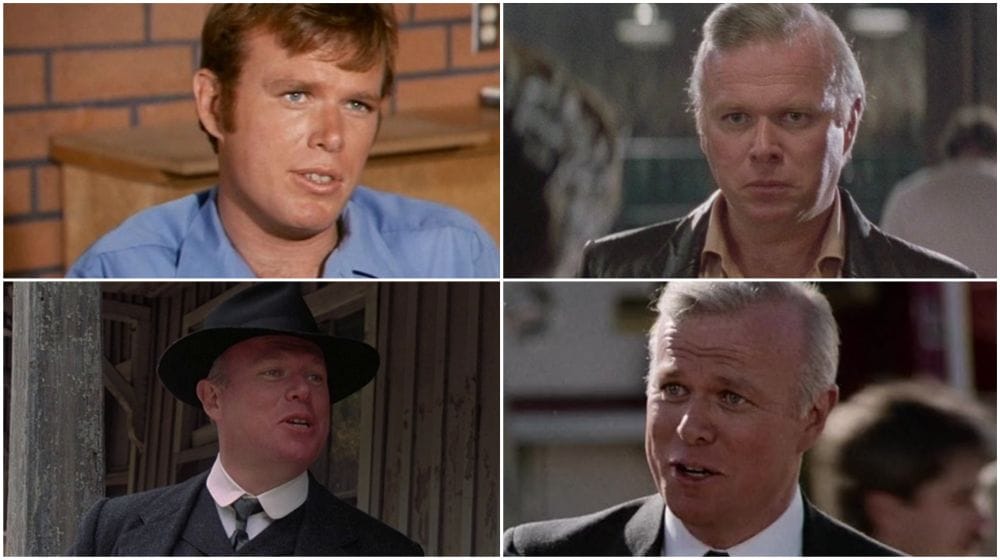
Because it was such a challenge for you to remember your lines, was it also then challenging to connect with this character in a way that you wanted to?
No. Actually, [the cards] unlocked something for me. I could go immediately to it. Not to get too involved in [the details of] Parkinson’s, but it is an interesting disease to deal with. One of the things that I have is, other than mild cognitive impairment, is horrible dreams, nightmares. I thought of this man with that in mind, as a repressed part of who we are. It becomes almost laughable and a little absurd, a character trapped in this carnival. He’s seemingly in charge and yet is he? Who is he, when all those [other Christmas Adventurers] leave?
One of the nice blessings about this particular role is they gave me a home. When you give an actor a home, it just adds to it. The set becomes yours. And I was able to peel off some of that information the first day of shooting, so that when I came back again, I was immersed and everything was there. Just immediately I didn’t even have to look at the words. It was like I already had them. It was just the reassurance that they were there. Anyway. Interesting.
Your character is confined to this small space in this small part of a very large movie. What was it like to see the movie and see how you figured into it?
I’ve seen it three times now. I’ve seen two standard versions and the other night I saw it for the first time in IMAX. The first time I saw it, I was pleased with what I did and I thought it worked, and I thought it provided an energy to the scene. When I saw it the second time, I was critical after seeing it the first time, just a little critical. “Was it enough? No, I think it’s okay.” And then when I saw it on the big screen, the 70 millimeter, then it was great. It was entertainment. I had participated in a dark event, made comic by the Dr. Strangelove feeling in it.
What’s interesting is that when I first saw it, there was only a couple of people in the audience. It was on an afternoon in a movie complex and nobody laughed. And I didn’t laugh, either, because I was coursing through my own emotional journey as the character watching, becoming the actor becoming. And so when I saw it with a group with more people, and they started to laugh, and I went, “Of course, there it is!”
I remember doing Gilbert Grape and thinking about Leonardo DiCaprio and we were doing a scene. Lasse Hallström was directing and it was with Johnny Depp and there was some comedy in there. And Lasse said to me after we’d done a scene a couple of times, he came over and he said, “Don’t play the comedy. You don’t know it’s funny. Just be who you are.”
The Reveal is a reader-supported newsletter dedicated to bringing you great essays, reviews and conversation about movies. If you enjoyed this conversation, please consider joining our community. There's more where that came from.
It reminded me of an old Woody Allen audition I had years ago where I auditioned for a part in one of his films and I started doing the scene and he stopped me and he went, “No, no, no. You’re acting. Don’t act. Just be who you are.” And I tried it again and tried to become more of who I was and he said, “No, no, no, no, no, no, no, you’re still acting.” I didn't get that role, but I walked away from that experience with questions that radiated for years later. “What do we do in film?” “Who are we and how can we be someone else and how can we unite the two and where does that work?” It had taken me a long time to get there, and I kind of felt like it was all in that little small cameo [in One Battle After Another]. All of the stuff I ever did. I felt proud to be a part of it. I get a little emotional about it now.
We live in a time now where it’s common for actors to go back and forth between television and film quite frequently, but that was not the case for you. Your career was divided pretty strictly between a very long stretch where you were in television, and then from mid-to-late ’80s onward, you did more in film. How did that come about? Was that something you had any kind of control over?
I got out of graduate school at USC [in 1967] and then immediately went into a play, Design for Living, with Robert Stephens and Maggie Smith and was on the trajectory that I thought would lead to theater and perhaps film. And before that, I had a bit part that was of my shoulder, which was the only thing that appeared in The Graduate. [Laughs.]
And then I was in the army for a couple of years and what the army did was it made me want to find a place for myself creatively again. Anyway, I had come back from London to [Los Angeles] to try to get some more money to move back there and do some work, and they called me in on a pilot. The pilot was for a show called Emergency! and I was cast in it and it went on for six years. And then I became somewhat of a celebrity associated with a show, a mild celebrity, because the show was up against All in the Family, a half-hour sitcom, and Kung Fu with David Carradine.
I was married on the show and I wore a uniform on the show and I was so much a part of that show that I couldn’t get any work when it ended. Randy [Mantooth], my partner on the show, immediately went into another show or got cast and had started right off with another career, but I couldn’t get a job. So I did a series of plays at the Old Globe Theater and I was cast in Macbeth and in Julius Caesar. I was going to do two roles and I was fired. At the time, I thought the reason why is that they had fired the director, too. But the other part was that it became apparent to me that I really wasn’t very good as an actor. I mean, there was nothing going on. I was stuck in the personality that I created on that show, Emergency!, and everything radiated out from that.
So I moved to New York and I started studying. I studied with Stella Adler and Bobby Lewis and just started all over again. I did regional theater and started to find my legs again, only with a little more depth to my character than I was before I got there. And along comes Matewan, this movie by John Sayles. Ironically, when I was doing the Emergency!, part of the job that I welcomed actually was our hiatuses. I’d go to different cities trying to bring publicity towards paramedics to [drum up interest] in the program in various parts of the country that needed paramedics. And one of them was in West Virginia, where they needed helicopters, and there were hollers and places where they couldn’t get to right away with a car.
There was a need there and there was a depressed working class. Anyway, when I auditioned for Matewan, it was like I knew this. I had engorged myself with lots of information regarding what was going on in West Virginia. And so when I auditioned for Matewan, there was a depth to it. John felt that from me. We’d never even met before and he cast me. And when I did that role, he said to me, “Things are going to change. You’re going to be doing heavies from now on.”
What I found in Matewan was part of myself. Matewan gave me the express ticket to kind of go in that direction to start. So that’s where things got more interesting. I didn’t always make the right choices, but I made the choices I made and got to where I got. I didn’t get a chance to cap the experience I had because of COVID and because of the Parkinson's. So this role [in One Battle After Another], as brief as it is, gave me a chance to do that. I feel like it all worked.
It’s funny you mentioned being cast as the heavy, because you’re a union buster in Matewan, you’re a bookmaker in Eight Men Out, you’re a drug lord in K-9. You’re not necessarily a sinister figure in Road House, but you’re not the cleanest character, either. Were you happy to be cast that way? Did you find something in those roles that was exciting for you?
Yeah, because they were challenging. I always liked the idea that a bad man has good qualities and always trying to find what that was. There was always a kind of smile to the guys that I played. I tried to make them different. There were times when there was only so much I could do. Mumford had this little role where I was just a caring father and brief as it was it, I kind of got excited.
Anyway, I was shooting a movie in Montana, I can’t remember which one, and I did a fight scene, which I shouldn’t have done, and my eye got cut. We had to stop shooting and I had to go to the emergency ward. They put in a couple stitches in and delayed the film. And I had been cast for Postcards from the Edge with Mike Nichols, who I first met on The Graduate. That was going to be an opportunity I’d hoped would come around. But I missed the first day of the reading. And when I missed the first day of the reading, whatever happened, they had minimized the character. When I finally arrived there, I was still in this weird foreign place of the fight scene where I was playing this kind of bad guy when I didn’t want to necessarily be the bad guy.
I wanted to fit in with the people at the table, particularly Meryl Streep, who I really wanted to work with at some point. And there were other actors there that day, but they took the part out. I couldn’t play who I really wanted to play, and I was getting so close to just being who I was finally and seeing where that would take me. This role in [One Battle After Another] did that, too. It was like a cup of broth that overflowed with good intentions. I don’t know if that makes sense, but it’s a crazy world out there.
Do you have a performance that you’re particularly proud of? If someone were to put together a reel of your work in television and film, what would you want on the front of that reel?
I thought Matewan was a good one. I thought Tales from the Crypt that I did, “Cutting Cards,” with Lance Henriksen, was a good one. Walter Hill directed it. There was a play that I did called Bengal Tiger at the Baghdad Zoo. I did it at the Taper and I did it at the Kirk Douglas Theater. Robin Williams did it on Broadway. I thought my work in that was good. Those are the top experiences there. A Skull in Connemara is the play I did at the Roundabout. I enjoyed that very much. Tapped into it, four months of working with New York audiences and that was great.
A lot of people, myself included, consider One Battle After Another to be one of the great films of the last four or five years or so. And you’re a part of that, too. There’s a reason why you were cast in that movie. There’s a gravity you bring to that character that’s really exciting.
It’s great. Everything about it has been a plus.
One thing I want to mention is the crews. When you’re on a television show, you’ve got this crew and you become almost a family. You know what I mean? You’ve spent years together. But the same thing happens in films, too, with the crew. I think the experience of just being around them again… I’m getting emotional, but that feeling of being around all the women and men who work in crews… they bring integrity to it. They're there every day. They’re there before we get there as an actor, and they’re there after you wrap things up.
And I missed that and I got that again on this film. I was able to have that feeling because when I was having difficulty with the lines and all that, the first day, they were being really supportive in their silent way of just being there for me and being there for all of us. We’re all working towards the same thing, which is to make a good picture. I feel like a part of this movie. Even though my role is brief, I feel like, “Yeah, I’m part of something here. This is good. I’m going to remember this.”

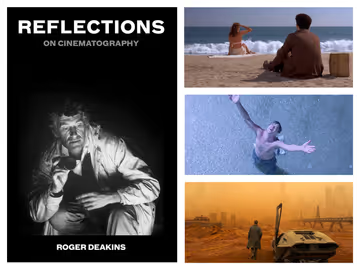
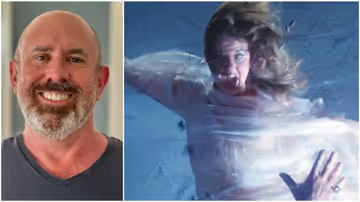
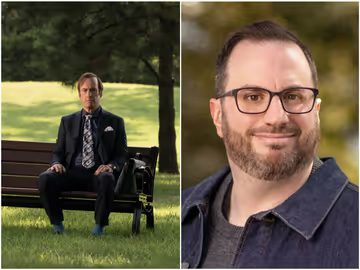
Discussion